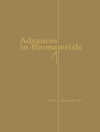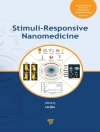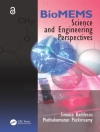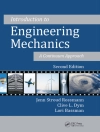From the publishers of the market-leading at a
Glance series comes this new title on all aspects of
caring for patients in the perioperative environment. From
pre-operative care, through the anaesthetic and surgical phases to
post-operation and recovery, this easy-to-read, quick-reference
resource uses the unique at a Glance format to
quickly convey need-to-know information in both images and text,
allowing vital knowledge to be revised promptly and
efficiently.
* Brings together all aspects of perioperative practice in one
easy-to-read book
* Moves through the patient journey, providing support to
perioperative practitioners in all aspects of their role
* Covers key information on perioperative emergencies
* Includes material on advanced skills to support Advanced
Practitioners
* Each topic is covered in two pages, allowing for easy revision
and reference
This is a must-have resource for operating department
practitioners and students, theatre nurses and nursing students,
and trainee surgeons and anaesthetists.
Mục lục
Preface vii
Acknowledgements viii
Surgical and anaesthetic abbreviations and acronyms ix
How to use your textbook xiii
Part 1 Introduction to perioperative practice 1
1 Preoperative patient preparation 2
2 Theatre scrubs and personal protective equipment (PPE) 4
3 Preventing the transmission of infection 6
4 Preparing and managing equipment 8
5 Perioperative patient care 10
6 Surgical Safety Checklist – Part 1 12
7 Surgical Safety Checklist – Part 2 14
8 Legal and professional accountability 16
9 Interprofessional teamworking 18
Part 2 Anaesthesia 21
10 Preparing anaesthetic equipment 22
11 Checking the anaesthetic machine 24
12 Anatomy and physiology of the respiratory and cardiovascular systems 26
13 Anaesthetic drugs 28
14 Perioperative fluid management 30
15 Monitoring the patient 32
16 General anaesthesia 34
17 Local anaesthesia 36
18 Regional anaesthesia 38
Part 3 Surgery 41
19 Roles of the circulating and scrub team 42
20 Basic surgical instruments 44
21 Surgical scrubbing 46
22 Surgical positioning 48
23 Maintaining the sterile field 50
24 Sterilisation and disinfection 52
25 Swab and instrument counts 54
26 Working with electrosurgery 56
27 Tourniquet management 58
28 Wounds and dressings 60
Part 4 Recovery 63
29 Introducing the recovery room 64
30 Patient handover 66
31 Postoperative patient care – Part 1 68
32 Postoperative patient care – Part 2 70
33 Monitoring in recovery 72
34 Maintaining the airway 74
35 Common postoperative problems 76
36 Managing postoperative pain 78
37 Managing postoperative nausea and vomiting 80
Part 5 Perioperative emergencies 83
38 Caring for the critically ill 84
39 Airway problems 86
40 Rapid sequence induction 88
41 Bleeding problems 90
42 Malignant hyperthermia 92
43 Cardiovascular problems 94
44 Electrosurgical burns 96
45 Venous thromboembolism 98
46 Latex allergy 100
Part 6 Advanced surgical practice 103
47 Assisting the surgeon 104
48 Shaving, marking, prepping and draping 106
49 Retraction of tissues 108
50 Suture techniques and materials 110
51 Haemostatic techniques 112
52 Laparoscopic surgery 114
53 Orthopaedic surgery 116
54 Cardiac surgery 118
55 Things to do after surgery 120
References and further reading 122
Index 144
Giới thiệu về tác giả
Paul Wicker is Head of Perioperative Studies, Faculty of Health, Edge Hill University, Ormskirk, Lancashire, UK. He is also Consultant Editor of the Journal of Operating Department Practice (published by Mark Allen Publishers) and author of Wiley title Caring for the Perioperative Patient.












